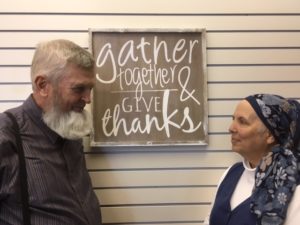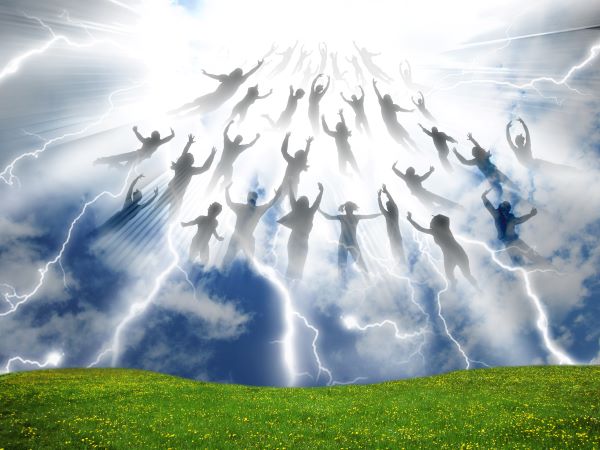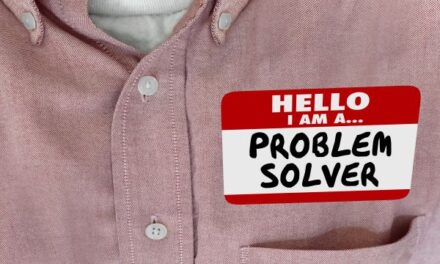Out of Bondage
By Jim Huskins
McDowell County
“Remember the former things of old: For I am God—there is no other. I am God, and there is none like Me—declaring the end from the beginning, from ancient time, what is yet to come, saying, ‘My purpose will stand, and I will accomplish all that I please.’”
Believers who consider themselves “New Testament Christians” should investigate the layers of truth contained in Isaiah 46:9-10. One of the many difficulties of attempting to understand the final third of the Bible without the context of the first two-thirds is that God began explaining the end of our age at the beginning of His book. At a time when many Americans are giving thanks for freedom, perhaps believers should remember God’s deliverance from ultimate bondage.
Freedom is the theme of the second book of the Bible. Exodus begins with God’s people enslaved to the most powerful nation on earth. The Hebrew word for “Egypt” is “Mitzrayim.” It means a “narrow place” or a “place to come out of.” More significant than physical bondage was Israel’s entrapment in a culture of polytheism. Each of the ten plagues was an affront to one or more Egyptian “gods.” The process God used to lead His children out of Egypt bears striking resemblance to prophecies found in the Book of Revelation. Consider a few parallels:
Both events hinge on the work of two witnesses
In Exodus 4:15-16, God instructs Moses that he and Aaron will be messengers to the Israelites and the Egyptians. Both men played pivotal roles in communicating God’s instructions and proclamations as the Exodus unfolded. Revelation 11:3-6 tells of “two witnesses” who will speak on God’s behalf. These witnesses will have the power to withhold rain, strike the earth with plagues and turn water into blood. These are direct parallels to Moses and Aaron. The comparison is even more striking since verse 8 gives the location of the ministry of the two witnesses as “The great city that figuratively is called Sodom and Egypt—where also their Lord was crucified.”
The significance of Jerusalem being referenced by two names which are synonymous with sin and rebellion cannot be overstated. The heart of God’s kingdom will become a place His children must escape. The work of Satan and his beastly representative will cause Jerusalem to become as morally bankrupt as Sodom and ancient Egypt.
Another parallel between Exodus and Revelation is the first plague
God turned the waters of Egypt into the blood. Egyptians worshipped the Nile. They were forced to learn that their river is creation, not a creator. Similar plagues are found in Revelation 8:8, 8:10, and 16:3-4. No doubt many Egyptians died from lack of water. People around the world will die near the end.
Also common to these passages is a plague of debilitating boils
Some scholars propose that the “furnace” mentioned in Exodus 9:8-11 was an altar for human sacrifice. See also Revelation 16:2. During the Exodus, Israelites did not suffer this plague. In Revelation, it only happens to those who bear the mark of the beast.
A fourth parallel is a wilderness
Moses tells Pharaoh several times, including 5:1, that God wanted His people to travel into the wilderness to worship Him. After the tenth plague, they did. In Revelation 12:14, the woman, who represents the Nation of Israel, is borne into the wilderness for her protection.
Revelation 12 also contains a passage that is key to understanding who will be saved. Verse 17 defines the woman’s offspring as “Those who keep the commandments of God and hold to the testimony of Jesus.” This qualification is stated again in Revelation 14:12 which defines “the saints” as “those who keep the commandment of God and the faith of Jesus.” Revelation 22:14 says: “How fortunate are those who wash their robes, so that they may have the right to the Tree of Life and may enter through the gates into the city.” “Wash their robes” is a Hebrew idiom which means “obey God’s commands.”
Exodus is a type and shadow of end-time events. Pharaoh demanded obedience to his decrees, Satan, and his beast will do the same. In both situations, obedience to God’s instructions is crucial. Israelites who did not place the blood of the lamb on their door frames did not escape the death angel. Believers who do not obey God’s Torah and keep faith in Messiah will have no part in the Millennial Kingdom. Between now and then, we have much to do. Many have heard of the King of Kings and Lord of Lords, but few appear willing to follow Him on His terms: turning from sin and obeying scripture. Such obedience requires intimate knowledge of the Bible.
Many prophecies detail the greater exodus God will use to bring His children together at the end of the age. Revelation 11:4 says that the “two witnesses” are “two olive trees.” They represent the House of Judah and the House of Israel which will be reunited. The marvelous prophecy in Ezekiel 39:25-29 says that God is going to lead the scattered family of Jacob—which Gentiles are allowed to join through the work of Messiah—out of the wilderness and into the Promised Land. There we will experience the absence of pain and death and sorrow. There we will drink Living Water, eat of the Tree of Life, and walk in the Light of God’s presence. Never again will we shed a tear. The key to such marvelous freedom is found in the words of that simple, old hymn: Trust and Obey.
Obedient Heart Fellowship believes that the entire Bible is both true and relevant. We accept salvation by grace through faith in Jesus, and we attempt to love and serve Him by keeping his commandments. See Revelation 14:12. We hope to soon resume meeting each Sabbath—Seventh Day—in Marion. lostranger@mindspring.com
________________________________________________________________________________
Jim & Beverly Huskins are members of Obedient Heart Fellowship. You can read more from Jim HERE.
________________________________________________________________________________







